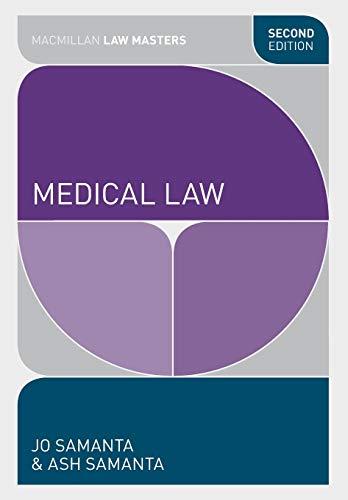Question
Accusations of bias are often raised in immigration cases. A built-in problem with immigration hearings is that Congress has authorized immigration judges to occupy the
Accusations of bias are often raised in immigration cases. A built-in problem with immigration hearings is that Congress has authorized immigration judges to occupy the dual role of prosecutor and judge. Deborah Anker reported on research into more than 200 asylum hearings, where refugees must show a likelihood of persecution in their home country because of theirrace, religion, political activities, or other protected categories. She reports that "asylumclaimants are often required to meet an excessively high standard of proof, contrary to U.S. Supreme Court precedent and international requirements; standards and rules are not clearly stated; inconsistent legal principles are applied; objective human rights assessments are discounted; restrictive evidentiary rules, not provided by regulation, are applied; and adequateinterpretation is not available."85
Judge Richard Posner of the 7th Circuit U.S. Court of Appeals, in his dissent in an asylum case,Apouviepseakoda v. Gonzales, 475 F.3d. 881 (2007), identifies reasons for bias by immigration judges: immigration judges too often judge social conditions in the refugee's home countrythrough an American lens, downplaying the likelihood of prosecution. Similarly, immigrationjudges' perceptions about the credibility of asylees may be colored by the culturally specificmannerisms and speech of the applicant, both of which are likely alien to the immigration judge. Such judgments are perilous, since facial expressions may mean different things in different cultures. Judge Posner points out that denying asylum in a meritorious case may literally doom the applicant.
But why should we be concerned with deciding asylum cases correctly? There are always costs and benefits associated with improving administrative action. Finding administrative law judges who are sensitive to cultural differences would be difficult and costly. Where should we draw the line? At present there is a huge backlog of disability cases in the Social Security Administration and a need to hire more judges to decide them, without which fair and timely adjudications may never resume. Which of these areas should have priority: reforming Social Security adjudications or reforming hearings? Why?
Step by Step Solution
There are 3 Steps involved in it
Step: 1

Get Instant Access to Expert-Tailored Solutions
See step-by-step solutions with expert insights and AI powered tools for academic success
Step: 2

Step: 3

Ace Your Homework with AI
Get the answers you need in no time with our AI-driven, step-by-step assistance
Get Started


